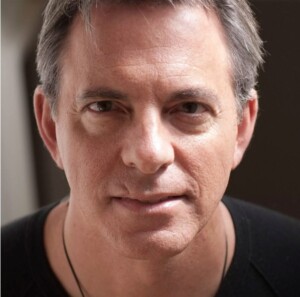Humanitarian activist defends adoption of business practices to leverage donations
Non-profit organizations live in a prison that prevents them from growing and transforming their surroundings. This is the vision of American businessman and activist Dan Pallotta, who participated in the 3rd Doar Seminar, an event aimed at the third sector, social entrepreneurs and philanthropists and organized by Instituto Mol and Movimento Bem Maior, which has Época Negócios as a media partner.

Dan Pallotta / Disclosure
When Dan Pallotta took the stage at the Ted Talks series in 2013, he thought no one would pay attention to his words. Seven years and more than 5 million views later, the video still draws attention by highlighting problems in NGOs' financing strategy and the contradictions of what is expected of them.
“Charity didn’t change the world as we hoped because it wasn’t what we asked of it. We required organizations to keep their overhead low and donate as much as possible to the cause, without investing in staff or ways to raise more. If they are making a difference, it means in the background,” she says.
Pallotta says that the third sector competes for resources at a great disadvantage compared to the private sector, and is encouraged to remain small. For him, this gap would decrease with investment in better salaries in organizations, the use of marketing and advertising to attract new donors and the possibility of accessing risky markets, which pay more aggressively. It would also be necessary to count on the patience of investors to create new forms of fundraising – which could take much longer than a fiscal year.
He states that NGOs need to “free themselves from this prison” to be able to attract more donors and multiply their impact. To do this, it would be necessary to convince current financiers of the importance of changing the strategy. “If I can't spend money to get more resources, I can't find other donors, and then I need to ask you for money again,” he argues.
The activist defends “donation literacy”, which explains the disadvantages of following the path outlined so far. His most recent book, The Everyday Philanthropist (no translation into Portuguese), is one of the tools he recommends to popularize these ideas and talk to his funders in a different way. But he recognizes that it is an arduous path, which requires a lot of repetition and convincing. “Promote discussions on the topic, talk about how the 'old way' hasn't worked, and repeat, repeat, repeat.”
And he has repeated his mantra, including to billionaires who seek his help. “I tell them: stop giving your money to children or the poor. Find the best organizations that help children and the poor, and give your money to the collection department. Ask for a business plan specifically aimed at this purpose, so that they can find more donors and raise more money,” he says.
Born in the 1960s, Pallotta likes to cite the Apollo mission, which put man on the Moon, as an example of an example of a dream taken seriously and which resulted in innovation and advancement for all humanity. “Once you challenge someone, like John F. Kennedy did by setting a deadline, you start talking about the issue and adopting a more courageous stance, which leads to collaboration and the creation of new thoughts,” he says .
He wants to inspire organizations to remember the dream that motivated them to work with a certain cause, and make them adopt a new stance to change their trajectory. “We changed the way people think about seat belts, about gay marriage. History is nothing more than a record of change. And now we need to change the way people think about charity”, he concludes.
This text was originally published on the Época Negócios website .







